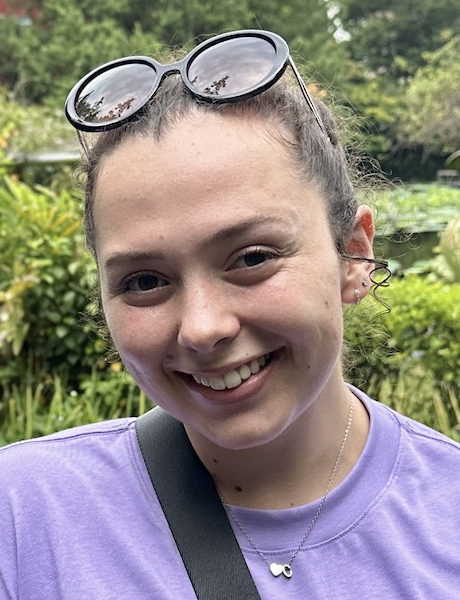Cate Satoris
This summer, I’m working as Moorhead’s Public Works intern. When I was interviewed for the position, I remember being asked what interested me most within the department. I simply said that I loved waste management. Afterwards, I remember laughing to myself—what sort of sane 22-year-old woman is interested in trash?
As a fourth-year Environmental Studies and Political Science student at Concordia College, my love for waste management is one that slowly developed. It began with a hatred for single-use plastic, morphed into a personal goal to discard less garbage, and eventually blossomed into a hope that better waste management can help combat the climate crisis.
Often, we believe that some larger force at play will step in to magically solve climate change. The issue with that belief is that we’ll continue to live as we always have, ultimately ignoring the power of individual action. One person acting alone may not influence much, but one person acting within a collective can contribute to lasting change.
An example I frequently use is this: I once worked at a coffee chain. Every shift, employees received a free shift drink. Unless you brought your own mug, your drink came in a single-use plastic cup, with an accompanying lid and straw. If you worked five shifts a week, four weeks a month, then you alone disposed of 20 cups, 20 lids, and 20 straws. Multiply that by 15 full-time employees, and suddenly one store is contributing upwards of 300 cups, 300 lids, and 300 straws to the waste stream per month. By bringing just one reusable cup, you can create a noticeable difference in your store’s waste volume.
Although tackling our waste practices can feel daunting, changing a small aspect of our daily routines can decrease the amount of waste we contribute. Best of all, our local sanitation and recycling departments already have the processes in place to help us clean up our routines—no pun intended. Our systems can only be as effective as we make them; we only need to remember to be active within them.
This summer, I’m excited to be learning about logistics and thought processes behind waste management. I can’t wait to listen, learn, and make suggestions. Although my role within the city may be small, it’s still important—not unlike our individual roles within the waste management stream.


